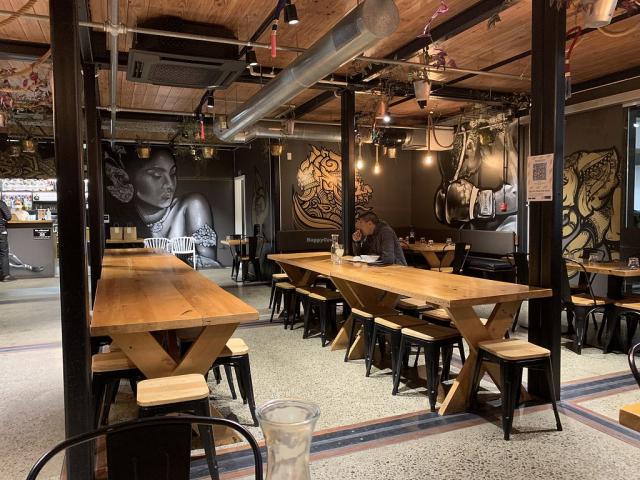Jazzy Seng, manager of Christchurch eateries Thai Box and Thai Container, with both takeaways using Uber Eats, told Checkpoint Uber Eats takes a 30 percent cut.
"Uber Eats is set up to extract as much money as possible, while still remaining viable for people by taking 30 percent from restaurants and take away joints like us and then they take a further service fee from customers who order from uber eats," she said.

"They don't know what goes into Uber Eats and what they're spending."
The restaurants take a cut, meaning their profit margins decrease through Uber Eats, she said.
"It's kind of like a double-edged sword because it doesn't really translate much for profit and our business, but it does give us exposure and people do order a lot from us through Uber Eats," she said.
Seng said Thai Box and Thai Container were two of the top performing takeaway joints on Uber Eats and signed up to the delivery service because of requests from customers.
When they first signed up to the delivery service, Uber Eats offered them a reduced fee, she said.
"We were really happy, because we're one of the top performing restaurants across New Zealand, especially in Christchurch, then last minute they turned around and they kind of took that away from us once we were ready to sign the papers," she said.
"That kind of just shows you what type of company we're dealing with here."
She said, especially during winter, people chose to order from Uber Eats.
"During winter, no one wants to leave the house, so they kind of just opt to get Uber Eats and honestly, I don't blame them, it's cold out here."
The restaurants had received many complaints that their prices were too high, she said.
"That's just the price that you have to pay for convenience. If we don't price the way we do, we're just cutting it a loss."

"We've got other delivery partners, but Uber Eats is just dominating this field. Delivereasy is around, there's DoorDash, but compared to Uber Eats, we don't get anything as close to what we get through Uber Eats, which is kind of sad because I always like to support local businesses," she said.
"I know there are New Zealand owned and operated delivery partners that we're with as well, but it's just we can't really keep it up."
She said if customers come into the store and order from the takeaway menu, they will get a much cheaper deal.
"We do try and encourage our customers to order directly through us, but again it is hard because people value their time a lot more now. Especially, when they're busy working people," she said.
"Most people don't realise how much it costs them to order Uber Eats until they see our takeaway price."
Seng said, however, they had not lost customers and Uber Eats did provide an extra stream of income.
"It would be great if we didn't have to rely on Uber eats, but it opens up a lot of like new customers and sometimes they do offer like free promotions on their end just to help small businesses like us.
"But we're just not at that point, and I know most other takeaway places and restaurants, they can't afford to lose their roots either. Sometimes on a quiet night, that's just all you have," she said.
People started regularly ordering food through Uber Eats through Covid-19, she said.
"We had a big increase of customers through Uber Eats during those times, and then it hasn't really stopped. Honestly, there's a little bit of a decrease, but every week we still get the same amount of orders, if not more every week. It depends on like promotions and stuff as well, but people are spending their money."
Checkpoint reached out to Uber ANZ, which manages Australia and New Zealand for comment, but the company did not respond.














